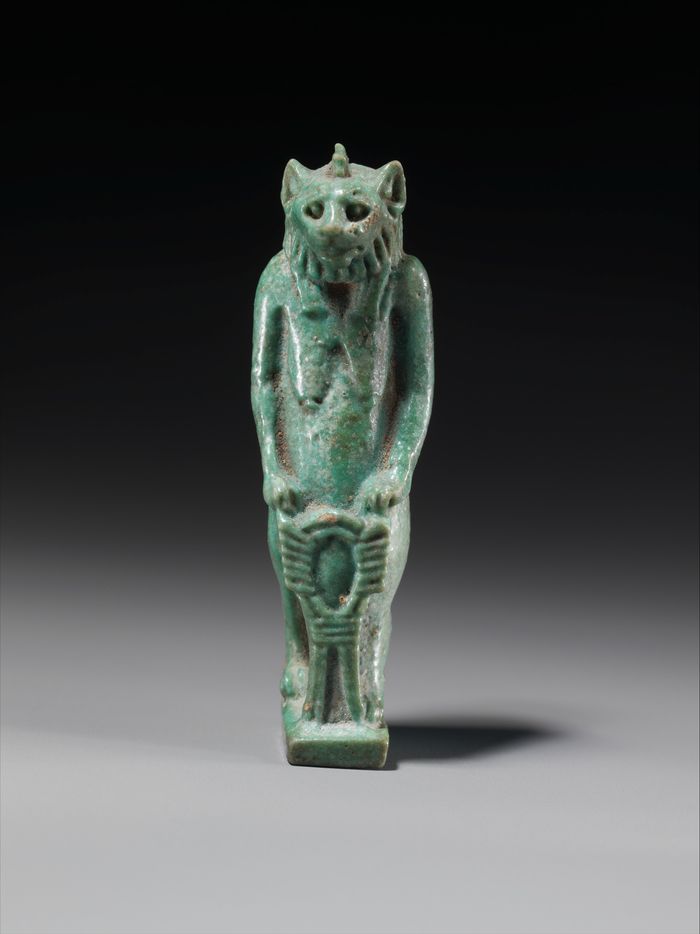
The Goddess Taweret with a Feline Head
An item at Metropolitan Museum of Art
In this depiction of Taweret, the goddess is shown with a feline head and on top of her head seems to be a small animal. As usual her massive hippopotamus torso includes the pendulous breasts of a woman, while the tail of a crocodile is on her back. Her human arms end in the paws of a lion and she stands upright on the legs of a lion. This hybrid creature combines the elements of dangerous and fertile creatures, perfect for a goddess that was meant to protect women and their children. In front of her legs is the sa-symbol, a protective loop that was also used as a hieroglyph to write the word for "protection" and for "amulet." The object here is a very small figurine that might have been used as a protective amulet, but it is also possible that it was a personal object of adoration or a gift to Taweret expressing the hope for her help and protection.
Egyptian Art
An exhibit at Metropolitan Museum of Art
The Met collection of ancient Egyptian art consists of approximately 30,000 objects of artistic, historical, and cultural importance, dating from about 300,000 BCE to the 4th century CE. A signifcant percentage of the collection is derived from the Museum's three decades of archaeological work in Egypt, initiated in 1906 in response to increasing interest in the culture of ancient Egypt.




